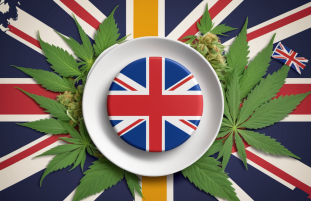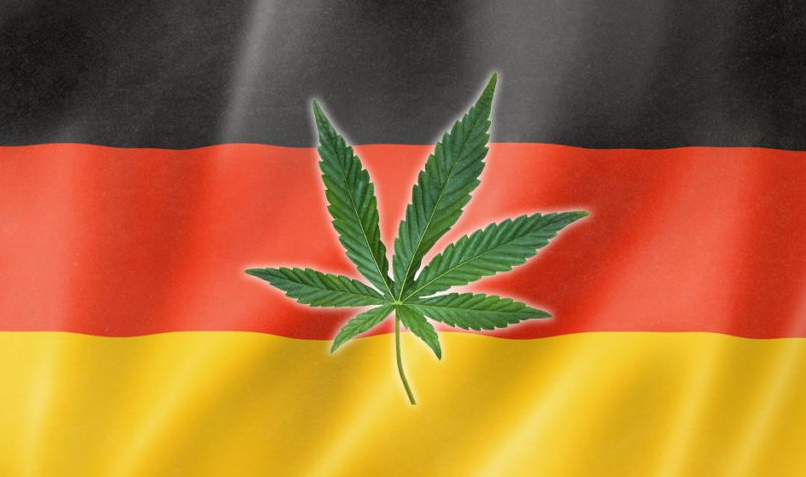The EU finally spoke out. They made it clear: hemp-derived CBD is not a narcotic, and it is a legitimate ingredient that can be traded freely between member states.
Review of Events
Portugal's National Agency for Medicines and Health Products (Infarmed) made a strong case that CBD extracted from the resin, tincture, or extract of the Cannabis plant is a narcotic under EU regulations.Infarmed stated that it is a "common mistake" to assume that CBD is an authorized ingredient in cosmetics simply because it is listed in the CosIng database. The agency asserts that the inclusion of an ingredient in the CosIng database does not inherently indicate authorization. Only the EU Cosmetics Regulation (EC) No 1223/2009 has the force of law on this point.

In fact, Infarmed's interpretation directly contradicts a 2020 ruling by the European Court of Justice (ECJ). The ECJ ruled that CBD is not a narcotic and should not be restricted from free trade between EU member states.
Portugal's regulator was widely criticized for removing several cosmetic products containing Cannabidiol (CBD) from the market, a move that clearly violated EU law on the free movement of CBD products and goods. This caused significant concern within the industry.
The European Commission acknowledged a lack of consensus among member states and the absence of harmonized practices.
The Commission's clarification is based on the "2020 European Court of Justice (ECJ) ruling in Case C-663/181," which concerned the "Kanavape (e-cigarettes) case." In that case, the ECJ ruled that CBD, whether synthesized or extracted from the whole plant, is not a narcotic. The European Commission has determined that CBD from industrial hemp, as well as synthetic CBD, is not subject to Article 306 of Annex II to Regulation (EC) No 1223/2009 and is therefore not considered a prohibited substance in cosmetics.
The ECJ's ruling was based on the 1961 UN Convention, which clearly states that CBD extracted from the cannabis sativa plant, including its flowers, does not meet the properties of a narcotic. The ECJ ruling also clearly stipulated that the sale of CBD products legally produced in another member state cannot be prohibited between EU member states unless there is scientific evidence of their potential harm.
The European Court of Justice's ruling in the Kanavape case was crucial. It created case law by ruling that member states, such as Portugal, cannot prohibit the sale of CBD that has been legally produced in another EU country.
Portugal's Directorate General for the Regulation of Food and Veterinary Affairs for Industrial Hemp has admitted that CBD is currently their biggest headache. Despite claims by hanja producers that they use the whole plant and several countries allow the extraction of CBD, Portugal has prohibited the development of hanja flowers and the extraction of CBD, as there is no scientific basis for protecting public health.
In response, the European Commission has made it clear that any restriction on the marketing of cosmetic products containing hanseatic-derived CBD must be well justified and must not go beyond what is necessary to ensure consumer safety. The European Commission also made it clear that due to the various disagreements surrounding hanseatic-derived CBD (and in particular the issue of THC residues), the European Commission has asked the Scientific Committee on Consumer Safety (SCCS) to carry out a scientific assessment of the safety of CBD in cosmetic products, including defining safe levels of THC residues in the final product.
The European Commission also made it clear that there is no consensus among EU member states on the regulation of CBD in cosmetics, and that there is currently no harmonized approach.
The EU Scientific Committee on Consumer Safety (SCCS) initiated a scientific assessment of the safety of CBD in cosmetics in June 2023. The public consultation on this assessment is open until September 2024, during which relevant scientific data will be collected. The SCCS has agreed to carry out a detailed study, and the final opinion is expected within 15 months (i.e., April 2026).
The European Commission has confirmed that future regulatory initiatives are planned to harmonize and coordinate the regulation of hemp-derived CBD in cosmetics across the EU. However, the implementation of these initiatives is contingent on the findings of the SCCS study.











